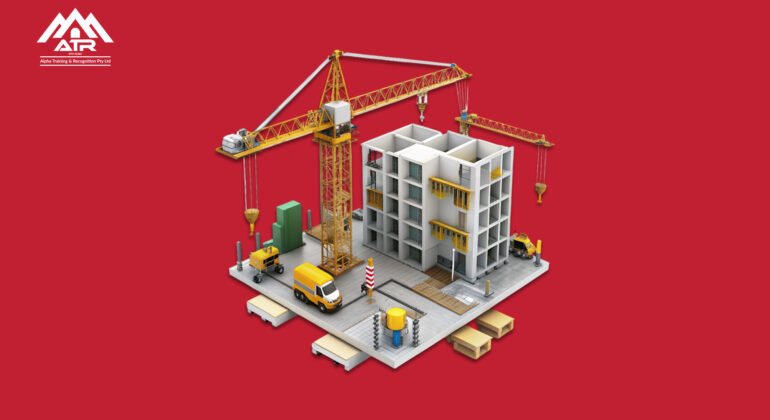CPC50220 – Diploma of Building and Construction
Overview
The CPC50220 – Diploma of Building and Construction is an essential qualification for anyone aspiring to advance their career in the construction industry. This comprehensive course equips you with the necessary skills and knowledge in building certification, construction management, building design, and construction projects. It is designed to meet the needs of those who wish to work as builders, construction managers, or site supervisors. This article explores the various facets of the CPC50220 diploma, offering a detailed guide on how to build a successful career in the building and construction sector.
The Importance of the CPC50220 Diploma
The construction industry is one of the most dynamic and essential sectors in Australia, contributing significantly to the economy and infrastructure development. A diploma in building and construction not only opens up numerous career opportunities but also provides a solid foundation in various aspects of construction management, building codes, and construction techniques.
Building Certification and Construction Management
Building certification ensures that construction projects comply with all relevant building codes and standards. The CPC50220 diploma covers essential topics in building certification, preparing students to understand and apply these regulations effectively.
Construction management involves overseeing construction projects from inception to completion. This includes planning, coordinating, budgeting, and supervising construction processes. The diploma provides comprehensive training in construction management, enabling graduates to manage both residential and commercial construction projects efficiently.
Key Topics in CPC50220 – Diploma of Building and Construction
Building Design and Construction Techniques
Building design is a critical aspect of construction that involves creating detailed architectural plans and drawings. The diploma covers architectural drafting, building design principles, and the use of modern construction technology.
Construction techniques refer to the methods and practices used in building construction. This includes various construction methods for different types of buildings, such as residential and commercial construction. The diploma provides hands-on training in these techniques, ensuring that graduates are well-prepared to implement them on-site.
Building Regulations and Project Management
Building regulations are laws and guidelines that ensure the safety and sustainability of buildings. The CPC50220 diploma includes comprehensive coverage of building regulations, codes, and standards, equipping students with the knowledge to ensure compliance in all construction projects.
Project management is a crucial skill for anyone in the construction industry. The diploma covers all aspects of construction project management, including project planning, scheduling, cost management, and risk management. This training ensures that graduates can effectively oversee construction projects, from initial planning to final completion.
Construction Safety and Site Management
Safety is a paramount concern in the construction industry. The diploma includes training in construction safety practices, risk management, and site supervision skills. Students learn how to maintain a safe working environment, comply with safety regulations, and manage on-site emergencies.
Site management involves overseeing the daily operations of a construction site. The diploma covers site management skills, including workforce management, coordination of trades, and quality control. This training ensures that graduates can effectively manage construction sites and ensure that projects are completed on time and within budget.
Sustainable Construction and Building Technology
Sustainable construction focuses on creating buildings that are environmentally friendly and energy-efficient. The diploma includes training in sustainable construction practices, building materials, and technologies that reduce the environmental impact of construction projects.
Building technology refers to the use of modern technologies and innovations in construction. The diploma covers the latest advancements in construction technology, including the use of advanced building materials, construction equipment, and software for project management and design.
Construction Law and Building Project Estimation
Understanding construction law is essential for anyone in the building industry. The diploma includes training in construction law, contracts, and dispute resolution, ensuring that graduates can navigate the legal aspects of construction projects.
Building project estimation involves calculating the costs and resources required for a construction project. The diploma covers techniques for accurate project estimation, including cost management, budgeting, and financial planning.
Steps to Obtain the CPC50220 Diploma
1. Research Training Providers
The first step in obtaining the CPC50220 diploma is to research and select a reputable training provider. Look for Registered Training Organizations (RTOs) that offer comprehensive and accredited programs.
2. Enroll in the Program
Once you have selected a training provider, enroll in the CPC50220 Diploma of Building and Construction program. Ensure that the program covers all the key topics and provides practical training opportunities.
3. Complete Theoretical Training
The theoretical training component includes coursework on various topics such as building design, construction techniques, project management, and construction law. This training can be completed online or in a classroom setting, depending on the provider.
4. Participate in Practical Training
Practical training is an essential part of the CPC50220 diploma. This involves hands-on experience in a construction setting, where you can apply the skills and knowledge you have learned. This training helps you gain real-world experience and prepares you for your role in the construction industry.
5. Complete Assessments
Throughout the program, you will be required to complete various assessments to demonstrate your understanding of the material. These assessments may include written assignments, practical demonstrations, and exams.
6. Obtain Certification
After successfully completing all coursework, practical training, and assessments, you will receive your CPC50220 Diploma of Building and Construction. This certification qualifies you to work in various roles within the construction industry, including construction management, site supervision, and building inspection.
Practical Applications of the CPC50220 Diploma
Real-life Example: Managing a Residential Construction Project
Consider the case of a construction manager overseeing a residential construction project. Using the skills and knowledge gained from the CPC50220 diploma, the manager can effectively plan and coordinate the project, ensuring compliance with building codes and regulations. The manager can also implement sustainable construction practices, manage the workforce, and ensure that the project is completed on time and within budget.
Metaphor: The Construction Manager as a Conductor
Imagine a construction manager as the conductor of an orchestra. Just as a conductor ensures that all musicians play in harmony, a construction manager ensures that all aspects of a construction project work together seamlessly. This metaphor highlights the crucial role that construction managers play in coordinating and overseeing construction projects.
Historical Perspective: The Evolution of Construction Techniques
The construction industry has evolved significantly over the years, with advancements in technology and building materials driving innovation. Historically, construction techniques were labor-intensive and relied heavily on manual labor. However, the advent of modern construction technology has revolutionized the industry, making construction processes more efficient and sustainable. The CPC50220 diploma reflects this evolution, providing comprehensive training in modern construction techniques and technology.
Statistical Insights: The Impact of Construction Managers
Research shows that effective construction management can significantly improve the outcomes of construction projects. According to a study by the Australian Bureau of Statistics, projects managed by certified construction managers demonstrate higher quality, better safety records, and improved cost efficiency. These findings underscore the importance of well-trained construction managers in the building industry.
Conclusion
The CPC50220 – Diploma of Building and Construction is a valuable qualification for anyone seeking to build a successful career in the construction industry. By providing comprehensive training in building certification, construction management, building design, and construction techniques, this diploma equips graduates with the skills and knowledge necessary to excel in various roles within the industry. As the construction industry continues to evolve, the importance of specialized training and certification becomes increasingly apparent. The CPC50220 diploma not only prepares individuals for the practical demands of the job but also empowers them to contribute to a more efficient, sustainable, and innovative construction sector. By bridging the gaps in education and supporting diverse learners, construction professionals play a vital role in shaping the future of the construction industry in Australia.



